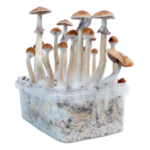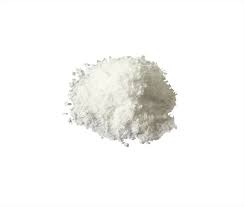2-FDCK & Ketamine in Australia
2-FDCK & Ketamine in Australia, Ketamine is a dissociative anesthetic developed for medical use; in recent years it has also been used off-label and in structured clinics for certain treatment-resistant mood disorders under medical supervision. Ketamine has well-documented medical uses and risks.
-
2-FDCK (2-fluorodeschloroketamine) is a designer / novel psychoactive ketamine analogue. It emerged in the drugs market as a “replacement” for ketamine in some contexts; its pharmacology, potency, and safety profile are less well understood than prescription ketamine. There are documented detections of 2-FDCK in multiple countries, including Australia.
Current legal status in Australia
-
2-FDCK: Australian controlled-substances and customs/ODC resources list 2-fluorodeschloroketamine as a controlled substance requiring licenses for import/export and subject to narcotic controls — in practice, this means non-medical possession, supply, or import is unlawful. Because 2-FDCK is a novel psychoactive substance and an analogue of ketamine, authorities treat it as a controlled drug.
-
Ketamine (medical): Ketamine is an approved medical anesthetic and is used in clinical settings. Medical and psychiatric use is tightly regulated; therapeutic uses (including ketamine nasal spray for treatment-resistant depression) are provided under clinical protocols and supervision. Recreational possession or supply of ketamine outside lawful clinical contexts is illegal. 2-FDCK & Ketamine in Australia
-
Scheduling & regulation framework: Australia uses the Poisons Standard / SUSMP to schedule substances nationally; scheduling decisions and therapeutic approvals are handled by the Therapeutic Goods Administration (TGA) and related bodies. Changes to scheduling or approvals are published through those agencies.
Why 2-FDCK is riskier than medically-administered ketamine
-
Uncertain potency and effects. 2-FDCK is a research/analogue compound with less formal toxicology data; user reports and forensic detections suggest dissociative effects, but dose-response and interactions are not well characterized. That uncertainty increases the risk of overdose or unexpected adverse effects.
-
Contamination and mislabeling. Illicit supplies of novel psychoactive are often impure or mixed with other drugs, which can produce dangerous interactions or toxic reactions.
-
No medical supervision. Medical ketamine is given in controlled settings with patient screening and vital-sign monitoring; recreational or unsupervised use eliminates these safety layers.
Harm-reduction guidance
I cannot provide instructions for using, dosing, or acquiring illicit substances. Instead, here are safer alternatives and steps to reduce harm for people who are concerned about these substances:
-
Prefer legal, clinical pathways. If someone is interested in ketamine for a health issue (e.g., severe depression), talk to a GP or psychiatrist about legitimate, supervised treatment options and approved therapies (including referral to clinics running evidence-based ketamine or ketamine programs). Medical treatments are administered with dosing, monitoring, and follow-up.
-
Avoid mixing substances. Combining dissociative with alcohol, opioids, benzodiazepines, or stimulants can dramatically increase risk of respiratory depression, loss of consciousness, injuries, or death.
-
Never use alone. If someone insists on taking a psychoactive dissociative (risk acknowledged), being with a sober, trusted person who can call emergency services is safer than being alone — but again, the safest course is not to use illicit substances at all.
-
Know the emergency signs. Call emergency services (000 in Australia) immediately if someone has trouble breathing, is non-responsive, has chest pain, seizures, uncontrollable vomiting, or prolonged unconsciousness.
-
Seek medical attention for concerning reactions. Even if you’re worried about legal consequences, health professionals’ priority is safety — explain symptoms honestly so you can get timely care.
Medical & support options in Australia
-
Talk to a GP or psychiatrist about evidence-based care for depression, chronic pain, PTSD, or substance use concerns. Many clinicians can discuss risks and refer to approved therapies or clinical trials.
-
Poison Information Centre (Australia): For immediate poisoning advice, call 13 11 26 (24/7). They provide confidential clinical advice. (This is the national poisons line in Australia.)
-
Lifeline (Australia): If someone is in emotional crisis or at risk of self-harm, call 13 11 14 or use online chat. (24/7).
-
Emergency services: Dial 000 for medical emergencies.
Research, regulation, and where to look for accurate information
-
WHO critical review & advisory documents have examined 2-FDCK and advised on international scheduling considerations; these documents summarise detections, pharmacology gaps, and public-health concerns. World Health Organization+1
-
Australian Office of Drug Control (ODC) publishes controlled-substance lists and import/export requirements (useful for confirming whether a compound is listed as a narcotic/import-controlled).
-
Therapeutic Goods Administration (TGA) and the Poisons Standard/SUSMP pages describe scheduling and therapeutic approvals (e.g., esketamine approvals and guidance). For the latest scheduling notices consult the TGA/Poisons Standard.
-
Clinical resources (RANZCP, Black Dog Institute) discuss therapeutic use, clinical guidance, and safety considerations for ketamine in psychiatry.
Example safety Q&A (for a website FAQ)
Q: Is 2-FDCK legal in Australia?
A: No—2-FDCK is treated as a controlled substance in Australia and importation/possession or supply without proper licences is illegal; authorities have documented detections and regulate it under narcotics/controlled-substance frameworks.
Q: Can ketamine be used legally for depression?
A: Yes — in Australia, ketamine (and esketamine nasal spray under specific approvals) can be used in clinical settings under medical supervision for treatment-resistant depression and other conditions, but these are highly regulated treatments.
Q: Where can I get help if I or someone else is harmed?
A: Call 000 for emergencies. For poisoning advice call 13 11 26 (Poisons Information Service). For mental-health crises call Lifeline 13 11 14. These services priorities safety and confidentiality.


